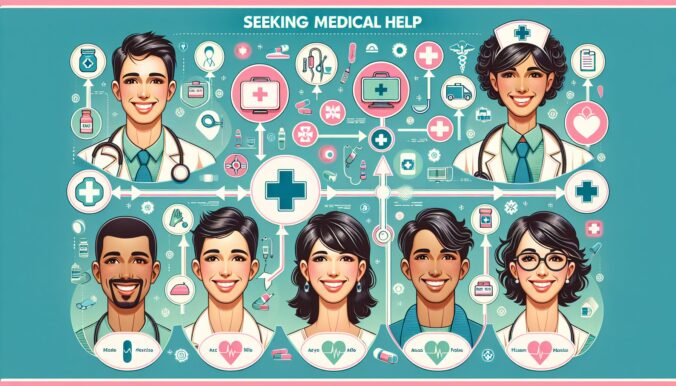Seeking medical help can be a daunting task, especially when you’re not sure where to start or who to turn to. It’s important to remember that your health is a priority and getting the proper care can make a difference in your overall well-being. In this guide, we will provide you with some tips on how to seek medical help and navigate the healthcare system.
Introduction
When you’re feeling unwell or have a health concern, it can be overwhelming to know where to begin. The first step is to assess the severity of your symptoms. If you are experiencing a medical emergency, such as chest pain, difficulty breathing, or sudden numbness, call 911 immediately. For non-emergency situations, there are several options available to seek medical help.
Body
1. Primary Care Physician
Your primary care physician is often your first point of contact for all your health concerns. If you have a regular doctor, schedule an appointment with them to discuss your symptoms and receive a proper diagnosis. They can also provide referrals to specialists if needed.
2. Urgent Care
Urgent care centers are a convenient option for medical issues that require immediate attention but are not life-threatening. They are typically open extended hours and do not require an appointment. Urgent care centers can treat a variety of conditions, such as minor injuries, infections, and illnesses.
3. Telemedicine
Telemedicine services are becoming increasingly popular, especially in light of the COVID-19 pandemic. Through virtual appointments, you can consult with a healthcare provider from the comfort of your home. Telemedicine is a convenient and safe option for routine medical consultations and follow-ups.
4. Emergency Room
If you are experiencing a medical emergency, such as severe chest pain or difficulty breathing, go to the nearest emergency room or call 911. Emergency rooms are equipped to handle life-threatening conditions and provide immediate medical care.
5. Community Health Clinics
Community health clinics offer a variety of healthcare services to underserved populations. If you do not have health insurance or are unable to afford traditional healthcare providers, community health clinics may be an option for affordable and accessible medical care.
Conclusion
When it comes to seeking medical help, it’s important to know your options and choose the appropriate level of care based on your symptoms. Whether it’s scheduling an appointment with your primary care physician, visiting an urgent care center, or seeking virtual healthcare services, there are resources available to help you address your health concerns. Remember, your health is important, and seeking medical help when needed can make a significant impact on your overall well-being.
